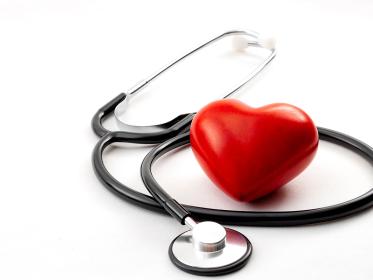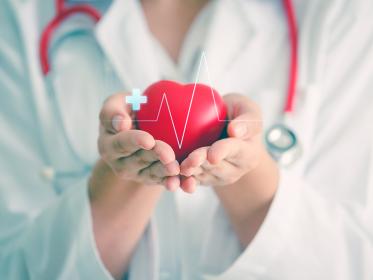Overview
Heart disease is the leading cause of death among American men and women of every ethnicity. Each year, about 600,000 people–one in every four deaths in the United States–die from some type of heart disease. The incidence of heart disease has continued to grow over the last 50 years, affecting 18 million people today.
In addition to the human costs, the financial burden is staggering. Coronary artery disease alone, the most common type of heart disease, costs the United States almost $109 billion a year in lost productivity, health care and medication.
“The good news is that there are many things you can do to decrease your risk of heart disease and its far-reaching impact,” says John Mack, MD, Cardiothoracic Surgeon. “Through our Heart Lung Vascular Institute, The University of Tennessee Medical Center offers a number of services to help people better manage their health to prevent or, if necessary, control heart disease through diet, exercise, healthy choices and medical treatment.”
Types and Causes of Heart Disease
There are many types of heart disease, including irregular rhythms and diseases of the heart valve and muscle. While some diseases are hereditary or congenital, lifestyle and diet can contribute to others. That means it is well within your power to prevent much of the damage.
Coronary disease. Coronary artery disease occurs when plaque builds up in the arteries and impedes the flow of blood and nutrients; it can cause shortness of breath, chest pain or even a heart attack. This type alone kills more than 385,000 people in the U.S. annually, affecting 13 million people, including about 8.5% of all white men, 7.9% of black men, and 6.3% of Mexican American men.
The plaque in arteries is caused by risk factors such as high LDL or “bad” cholesterol and other traditional risk factors: obesity, diabetes, high blood pressure, smoking and lifestyle.
Heart failure. The primary cause of more than 55,000 deaths each year and a contributing cause in another 280,000 deaths, heart failure doesn’t mean that the heart stops beating. It means that the heart cannot pump enough blood and oxygen to the organs. Diseases that damage the heart, such as coronary disease, high blood pressure and diabetes, are common causes of heart failure.
Heart attacks. They happen to about 715,000 Americans every year. Of these, 525,000 represent the person’s first heart attack. Since almost half of sudden cardiac deaths happen outside a hospital, early response is the key to surviving a heart attack and limiting the damage.
Most people know that chest pain is one sign of a heart attack, but few know all of the symptoms. Many heart attacks begin slowly, but people often do not pay attention to the early warning signs such as pain or squeezing pressure in the chest, arms, back, neck, jaw or upper abdomen; shortness of breath; nausea, light-headedness, cold sweats.
Atrial Fibrillation. The most common heart rhythm irregularity, atrial fibrillation is a major contributor to heart failure and increases the risk of ischemic stroke by five times.
Common Symptoms
Symptoms of heart disease include chest pain (from mild to severe), tightness or pressure; chest pain or shortness of breath during physical activity; nausea, sweating, dizziness, or difficulty breathing. Chest pain is usually relieved after a short rest.
Some people never develop symptoms at all. In fact, half of the men who die suddenly of heart-related problems had no previous symptoms. For that reason, it’s important to know your risks and manage them through diet, exercise and healthy habits.
Women can experience very different symptoms of heart attack. For example, they may not feel the extreme chest pressure that many men experience. Or they may feel extreme fatigue, shortness of breath and a squeezing pressure in the upper back.
Protect Your Heart
While you can’t change your age, gender or family history, you can decrease your risk of heart disease by taking good care of yourself.
There are plenty of things you can do to keep your heart healthy:
- Don’t smoke
- Monitor your blood pressure and keep it at a normal level through diet, exercise and, if necessary, medication
- Watch your cholesterol; keep your total cholesterol under 200, your LDL (“bad”) cholesterol under 100 and your HDL or “good” cholesterol at 60 or higher
- Eat a healthy diet; manage your weight
- Exercise
- Limit your intake of salt and fats, especially saturated fats
- If you drink, drink in moderation
- Keep your blood sugar under control: heart disease and stroke are the main causes of death in diabetics
If you do develop heart disease, there are many medical options, including medications (antiarrhythmic drugs, ACE inhibitor, aspirin, beta blockers, calcium channel blockers, digitalis, diuretic, nitrate, etc.) and special procedures (coronary angioplasty, coronary atherectomy, bypass surgery).
Heart disease is much more manageable today, and you can be part of the solution. Be good to yourself. Know your risks. And talk to your primary care physician about steps you can take to stay healthy.
Learn More at the Heart Center
The University of Tennessee Medical Center is the first in Tennessee to be awarded The Joint Commission’s Comprehensive Cardiac Center Certification. The Heart Center (Cardiology and Cardiothoracic Surgery) is an integral part of the Heart Lung Vascular Institute that provides medical, interventional and surgical care for cardiac conditions in Knoxville and the surrounding counties.
Our expert cardiologists and cardiothoracic surgeons treat heart conditions, from common ones to the rare and complex. The first step is an accurate diagnosis. Our specialists team up to provide you with comprehensive cardiac care.


